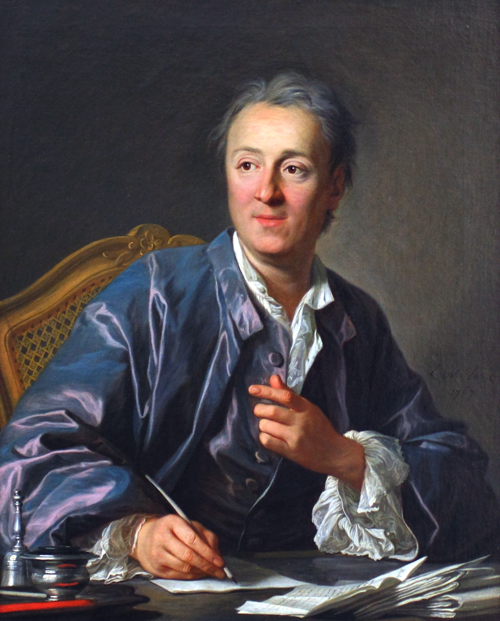
Your complimentary articles
You’ve read one of your four complimentary articles for this month.
You can read four articles free per month. To have complete access to the thousands of philosophy articles on this site, please
Philosophical Haiku
Denis Diderot (1713-1784)
by Terence Green
To think without chains
To be free of God and kings
I know my own good

Denis Diderot by Louis-michel Van Loo 1767
Denis Diderot was of humble stock – his father was a cutler (knife-maker) – and in his mannerisms and dress he always retained a semblance of this. For instance, he was known to turn up in polite society without wearing a wig!
As a young man, Diderot tried his hand at various things – the law, the church – but decided to be a writer. His father then disowned him, allowing him to experience the true writer’s life – that is, a life of poverty. This set the pattern for much of his life: he was forever a struggling man of letters, to the extent that he had to sell his library to provide his daughter with a dowry. (Catherine II of Russia bought it, told him to keep it in Paris, and even gave him a salary as a librarian. Having a modest library myself, I’m hoping someone will do the same for me.)
Still, Diderot never let his humble start in life blunt his ambition, and he came to be one of the leading figures of the French Enlightenment. He was instrumental in promoting the radical ideas of secular rationalism and materialism, which he did primarily through a small work he edited and partly wrote: the Encyclopédie (1751+). It had some twenty-seven volumes and took almost that many years to produce. He came to loathe it. His novel Jacques le fataliste (1796) also revealed a talent for doing philosophical comedy. And for a time he counted Jean-Jacques Rousseau among his friends, but the friendship didn’t last.
Committed to freedom in all realms of life, Diderot believed we should be free to think for ourselves, hemmed in neither by the dogma of the Church nor the laws of the State, and to choose for ourselves our own paths to happiness. He certainly chose his own path, even if it did not always lead to happiness.
© Terence Green 2024
Terence Green is a writer, historian, and lecturer who lives in Eastbourne, New Zealand.









